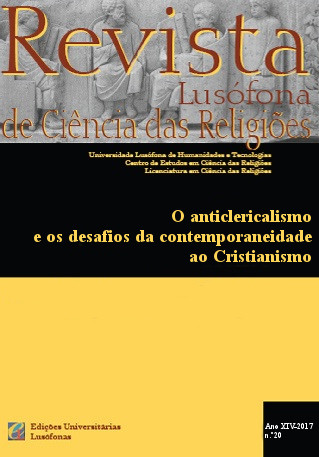Diversidade Religiosa e Idosos em Processo de Alfabetização: Cenários do Brasil
Resumo
Resumo
Trata-se de uma pesquisa qualitativa de cunho fenomenológico realizada com 05 idosos em processo de alfabetização que procurou identificar práticas curriculares exitosas, vinculadas ao trabalho pedagógico que considere a Diversidade Religiosa no desenvolvimento da oralidade, da escrita e da leitura de alfabetizandos(as) com mais de 65 anos de idade. A inquietação que gerou o tema/problema é parte do compromisso do programa de ensino, pesquisa e extensão SAFIRA – Saberes e Fazeres em Alfabetização de Jovens e Adultos que coordenamos no Departamento de Pedagogia da Universidade do Estado de Santa Catarina desde 2004. Foram selecionados intencionalmente 05 participantes residentes na Região da Grande Florianópolis. As entrevistas analisadas apontaram as seguintes dimensões: as tradições religiosas e suas práticas de leitura e escrita como elemento central na busca pela aprendizagem da língua materna por idosos; a alegria de ler textos, considerados sagrados, na terceira idade e o poder da escrita nas diferentes situações da vida. Assim, este trabalho reafirma a importância da temática Diversidade Religiosa em todos os componentes curriculares, níveis e modalidades da Educação Básica.
Palavras-chave: Alfabetização de Idosos; Diversidade Religiosa; Leitura e Escrita.
Abstract
This is a qualitative research carried out with five elderly people in a literacy process that sought to identify successful curricular practices, linked to the pedagogical work which considers Religious Diversity in the development of orality, writing and reading of literacy students over 65 years old. The concern that generated the theme/problem is part of the commitment of the teaching, research and extension program entitled Knowledge and Skills in Young and Adults Literacy (SAFIRA, in Portuguese: Saberes e Fazeres em Alfabetização de Jovens e Adultos) that we coordinate in the Department of Pedagogy of the State University of Santa Catarina (UDESC – Universidade do Estado de Santa Catarina) since 2004. It was intentionally selected five residents of the Greater Florianópolis area. The interviews pointed to the following dimensions: religious traditions and their reading and writing practices as a central element in the search for the learning of the mother tongue by
the elderly; the joy of reading texts, considered sacred, in the third age and the power of the
writing in the different situations of life. Thus, this work reassures the importance of the
theme Religious Diversity in all curricular components, levels and modalities of Basic
Education.
Keywords: Elderly Literacy; Religious Diversity; Reading and Writing.



